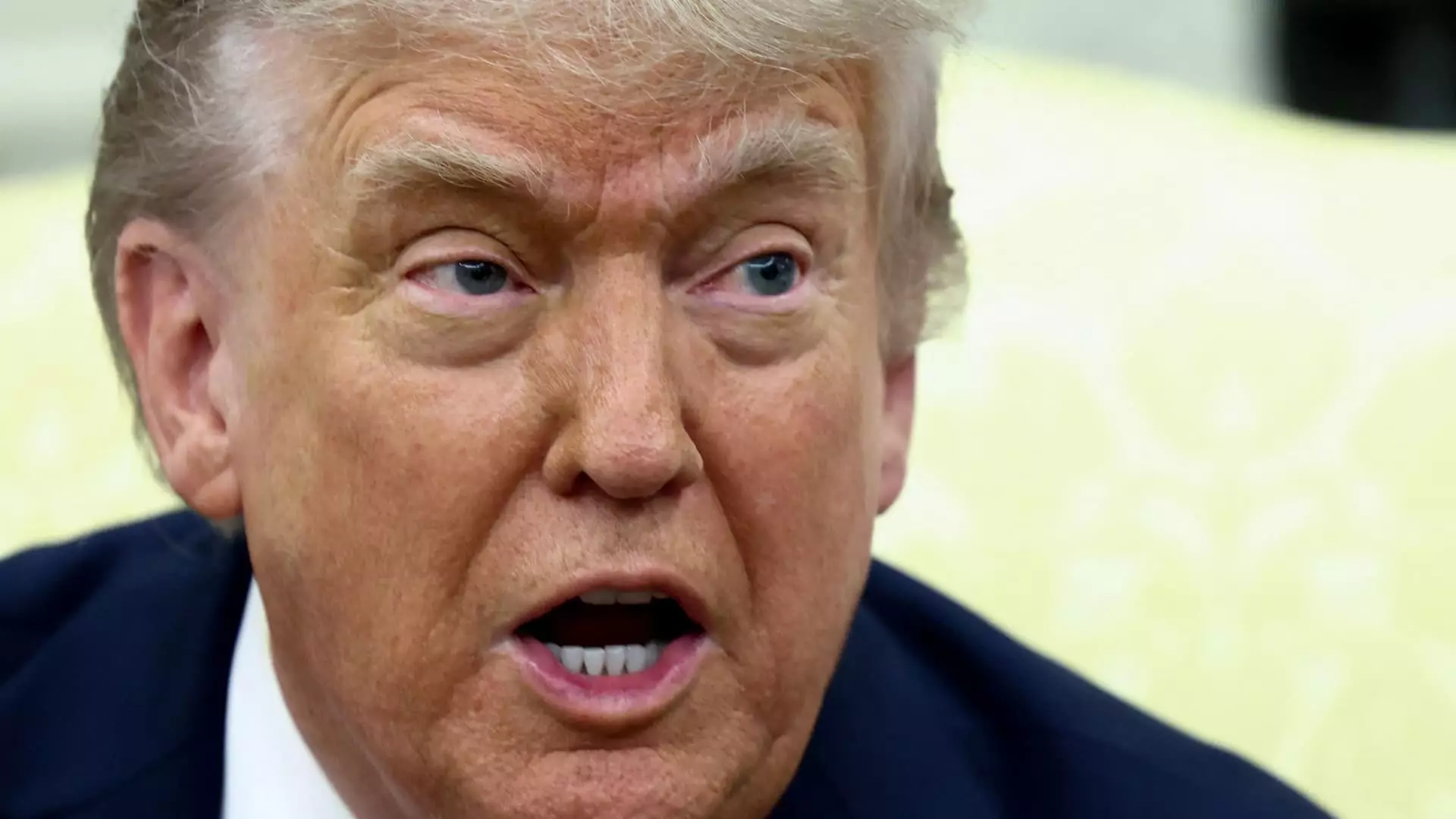In a highly publicized exchange that underscores the complexities of power and influence, President Donald Trump and billionaire entrepreneur Elon Musk have found themselves at loggerheads over a contentious tax bill. Strikingly, this clash is not just a mere disagreement between a politician and a business titan; it symbolizes deeper fissures in American politics and the intersecting worlds of tech, economics, and environmental policy. As Trump laments Musk’s discontent, claiming to have aided him significantly, Musk’s rebuttal—captured in a curt “Whatever”—reveals the potent rift that exists not just between the two men, but within the broader narrative of American governance and private enterprise.
Taxation and Technology: The EV Credit Debate
The crux of their disagreement lies in Trump’s proposed tax bill, which, among other issues, eliminates electric vehicle (EV) credits that have been crucial for promoting a greener economy. Musk, known for championing electric vehicles through Tesla, argues that cutting these incentives while preserving oil and gas subsidies is not just unfair—it is a step in the wrong direction for America’s climate goals. His critique highlights the broader implications of tax policy, especially at a time when the effects of climate change demand urgent attention. To dismiss Musk’s comments as merely the ramblings of an upset billionaire would be a grave oversight; they represent a call to consider how political decisions impact not just industry but the future of the planet.
The Political Undertones: Loyalty and Betrayal
Despite their past camaraderie—Musk, for instance, being a major benefactor of Trump’s 2024 campaign—their relationship demonstrates the frailty of political alliances. Trump’s comments suggest a betrayal on Musk’s part: “Elon knew the inner workings of this bill.” This sentiment is revealing; it implies that in Trump’s view, loyalty is expected, particularly from those who have benefited from his administration. Yet, Musk’s response might suggest a broader principle that transcends personal gain—advocating for policies that align with environmental responsibility, even if that means opposing a once-supportive President.
The rhetoric of personal disappointment from Trump reflects a deeper political narrative about allegiance and betrayal in the current landscape. While a politician may demand loyalty, the visionary entrepreneur is beholden to a different mandate: the ethical duty to drive innovation that benefits society and, in this case, the environment.
Pork Barrel Politics: Musings on Government Spending
In the chaotic mix of policy-making, Musk brought attention to an aspect that could easily be overshadowed by partisan bickering: the presence of “disgusting pork” in government bills. This term signifies unnecessary or excess spending that typically serves political interests rather than the interests of the public. Musk’s denunciation of this practice is not merely a superficial grumbling; it echoes sentiments shared by many across the political spectrum who are frustrated with government inefficiencies and the misallocation of taxpayer dollars.
Such outcries bring to light the conversation around accountability in government spending—fragile ties that bind officials must not be prioritized over responsible fiscal policy. Musk’s comment also serves as a reminder that in the tussle for economic reform, both progressive agendas and conservative stances need to address the common goal of efficiency and effectiveness in the use of public resources.
The Future of Innovation and Governance
The debate over this tax bill and the elimination of EV incentives provokes a pressing question about the compatibility of innovation and governance in today’s America. When political machinery and technocrats clash, whose vision should prevail? Should support for green technologies come at the cost of political approval? Or can leaders find a way to collaborate on an agenda that fosters economic growth while addressing environmental concerns?
As Trump defends his vision for the American economy, asserting that he’d rather be criticized than see his bill undermined, Musk represents a necessary counterbalance—a voice advocating for progress and accountability. Their sparring will reverberate beyond their personal grievances, as the future of policies that dictate American innovation hinges on whether political leaders can learn to listen. The hope is that neither the blunt language of a brash President nor the sharp wit of a tech mogul derails the critical conversation about how we can innovate sustainably and responsibly, ensuring that America remains at the forefront of both technology and environmental stewardship.


Leave a Reply